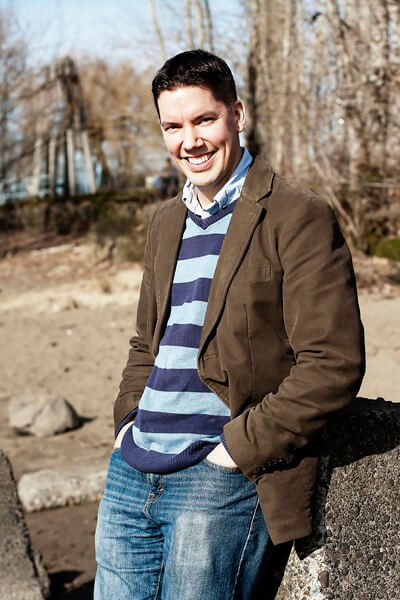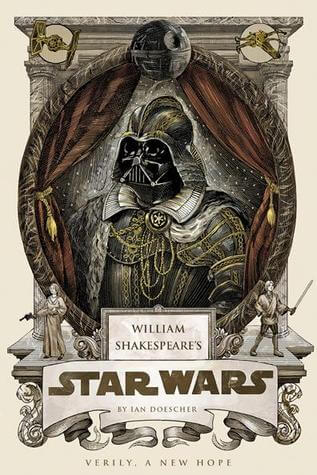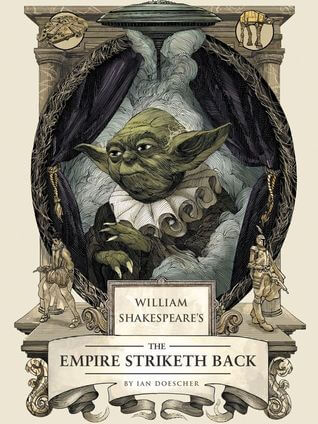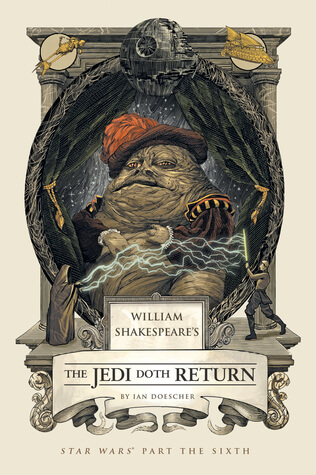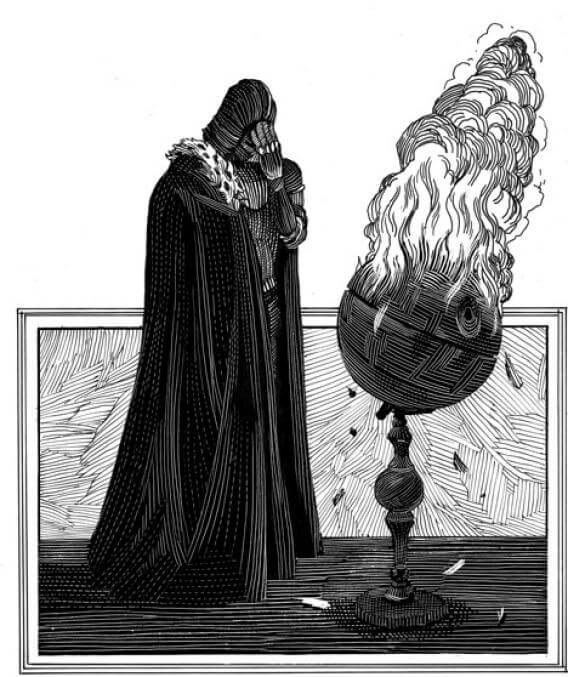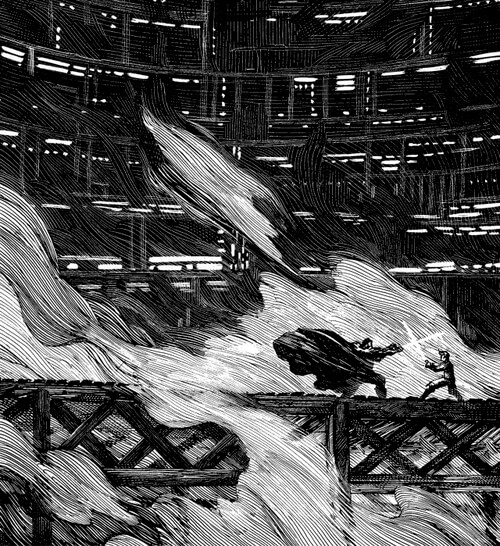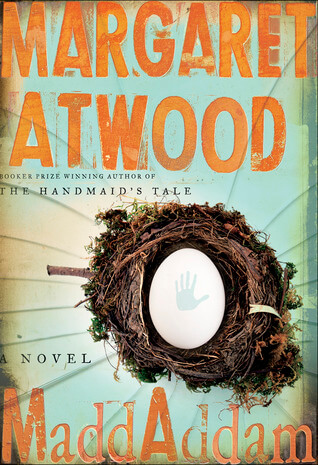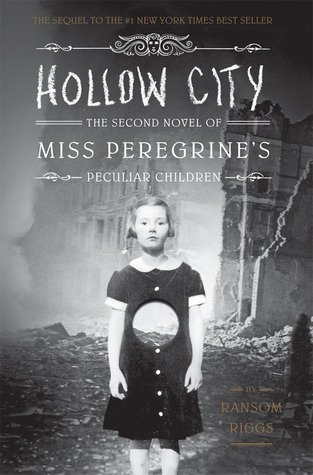A long time ago in a galaxy far, far away, Ian Doescher got a crazy idea to combine two well-loved worlds. His odds of navigating the mashup successfully were about the same as navigating an asteroid field, but maybe no one told him the odds. William Shakespeare’s Star Wars® was published in 2013 to acclaim from Star Wars and Shakespeare fans alike, lauded by everyone from high school teachers to Entertainment Weekly. I listed the book as one of my top reads of 2013. Its followup, The Empire Striketh Back, hits bookstores in February 2014.
Ian, thanks so much for taking the time to answer some questions for me. I need to start with probably the most asked question: how did this idea, rewriting A New Hope as a Shakespearian play, come about?
In the spring and summer of 2012, three things happened: I watched the Star Wars trilogy with some friends for the first time in several years, I read Pride and Prejudice and Zombies, and I attended the Oregon Shakespeare festival with my family. I attribute the idea for William Shakespeare’s Star Wars to those three things combining in my subconscious. At the Oregon Shakespeare Festival, we saw a funny modern adaptation of Shakespeare called The Very Merry Wives of Windsor, Iowa, so I was already primed for novel interpretations of Shakespeare.
How did you go from “this is a funny concept” to actually writing this book?
My naiveté served me well. I contacted Jason Rekulak, an editor from Quirk Books (I knew they had published Pride and Prejudice and Zombies), and told him about the idea. He wrote back pretty quickly, saying it was an interesting idea and he would happily read a sample if I wrote it. Knowing that a real editor was going to read something I wrote was enough motivation for me to start writing. Over the next three weeks, I wrote the first act.
Were you always planning to write the full trilogy? Did you have to wait to find out if Empire was a go? Were you already working on it?
The sequels were only confirmed after the first book came out. There was talk of the sequels before the first book came out, but the answer was always, “Let’s see how the first one does.” About three weeks after the first book came out, once we all knew it was successful, I got the call about writing the sequels.
You got to be one of the narrators on the audiobook versions, working with some veteran Star Wars audiobook voices like January LaVoy and Marc Thompson. What was that process like? Were you in the room with the other narrators? How long did recording take? Did you have to audition for your own book?
I wish I could have been there with all the narrators. Instead, I went to a friend’s studio in Portland, Oregon (where I live), and recorded just my parts, with the producer from Random House joining us via Skype. It was great fun. Luckily, no, I didn’t have to audition. They just gave me small parts. (I keep telling myself there are no small parts, only small actors!)
Your books are peppered with allusions to Shakespeare’s works. Do you have an allusion you’re particularly fond of? Were there any references you wanted to make but haven’t been able to fit in yet?
When I wrote the first book, I knew I wanted to have the moment where Luke holds the stormtrooper’s helmet up and mimics Hamlet’s speech about Yorick: “Alas, poor stormtrooper, I knew ye not…” Also, here’s a little preview: I enjoyed writing a monologue for C-3PO in The Jedi Doth Return that is a line-for-line recreation of the “All the world’s a stage” speech from As You Like It, as C-3PO tells the Ewoks the rebels’ story.
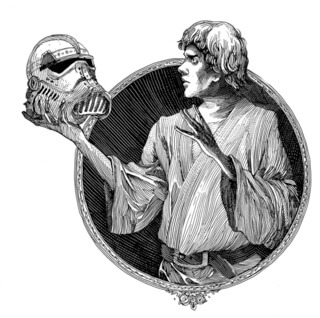
Can’t wait to read that! Do you have a favourite line or two from the movies?
Han’s response to Leia when she says “I love you” is famous because it’s just so cool: “I know.” Even as a kid I wanted to have that kind of swagger (I never accomplished it). Most of my other favorite lines are Han’s, too: “Great shot, kid, that was one in a million!” “Never tell me the odds!” “You’re gonna die here, too… convenient.”
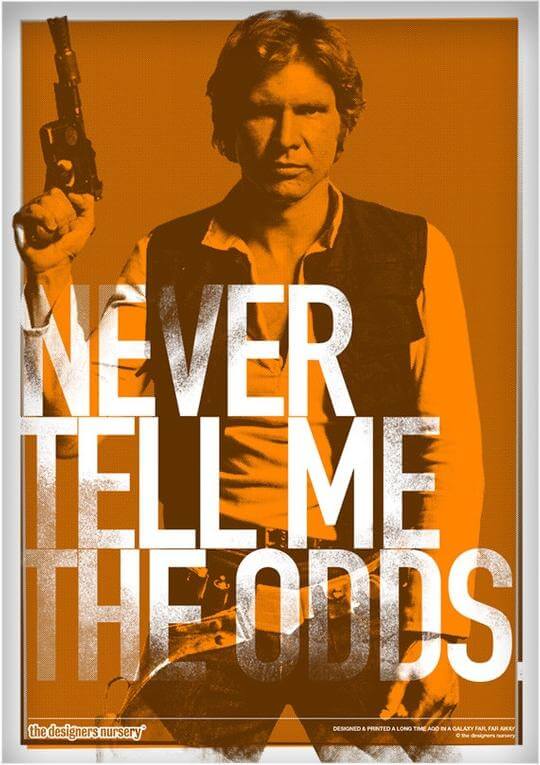
I’m sure you’re aware that your work is now being read and performed across North America. I had a chance to watch Driftwood Theatre in Toronto do a raucous table reading with a number of well-known Canadian stage actors last October. They had the entire pub in tears, we were laughing and cheering so hard. Have you seen a full production of William Shakespeare’s Star Wars®?
Not yet. The truth is that Lucasfilm, which owns the copyright for the book, is not allowing full performances right now. Some theaters are going ahead with productions or readings anyway, which is fun. I wish there were an official, approved way for full performances to happen. Maybe one day!
This book is being praised for making the language of Shakespeare accessible to middle and high school students. Did you have any idea what kind of impact a book like this could make?
More than anything, I want the books to be something people enjoy. But right after that, I do (and did when I wrote them) hope that the books can be a bridge into Shakespeare for students who are nervous about reading his plays. There’s a lot of cultural fear around Shakespeare, and I think many students assume they won’t be able to understand Shakespeare even before they read him. It has been great fun meeting the teachers and Skyping with classrooms that are working with the books. It’s an honor for me, and if my books help kids get into Shakespeare that’s about the best gift I can be given.
Part of the joy of reading these books is the artwork by Nicolas Delort. Were you familiar with Nicolas’s work? Did you have any input into the illustrations?
Quirk Books found Nicolas. I love his work, and his illustrations add such depth to the books. He and I have interacted just a bit, and he seems like a nice guy in addition to being wonderful talented. I was involved in the process of determining what parts of the book we would have illustrated for Empire and Jedi, and it was fun to be in on those conversations.
Are you a sci-fi fan? What are some of your favourite genre books or franchises?
I am embarrassed to say I am not a huge sci-fi fan. It’s not that I don’t like it, I just haven’t read much sci-fi (a few scattered Star Trek books when I was in high school, and that’s about it). Now that I’m immersed in the culture, the list of sci-fi books I want to read is growing. So ask me this question again in a couple of years, and hopefully I’ll have a better answer!
And do you have a favourite Shakespeare play?
Probably Hamlet, mostly because it’s the play I know best. I also love The Tempest, Much Ado About Nothing, Othello, Henry V, and A Midsummer Night’s Dream. I know all of those plays pretty well, I’ve seen them all performed, I’ve memorized speeches from each of them. Now that I’ve written William Shakespeare’s Star Wars, I’d like to go back and familiarize myself with some of Shakespeare’s lesser known plays again—the Coriolanuses of the world.
What has been the hardest scene for you to Shakespearize?
The final Death Star battle scene of Star Wars was probably the hardest, and honestly I still don’t love how it turned out in William Shakespeare’s Star Wars. It’s so hard to take an action sequence and turn it into what is basically all dialogue. And that scene islong. It’s one big unbroken battle sequence. At least in the final Death Star battle in Return of the Jedi, the action is broken up with the Luke/Vader/Emperor scenes and the battle of Endor scenes. But in Star Wars, it’s just one long sequence, and it was hard to make it work well in a written format. I’d love to see it staged sometime and see how a director would handle it.
Published by Quirk Books, William Shakespeare’s Star Wars and The Empire Striketh Back are available now. Watch for The Jedi Doth Return on July 1st, 2014.
Thanks to Quirk Books for a review copy of The Empire Striketh Back!
You might also like:
|
A review of Hollow City (Miss Peregrine #2), by Ransom Riggs |
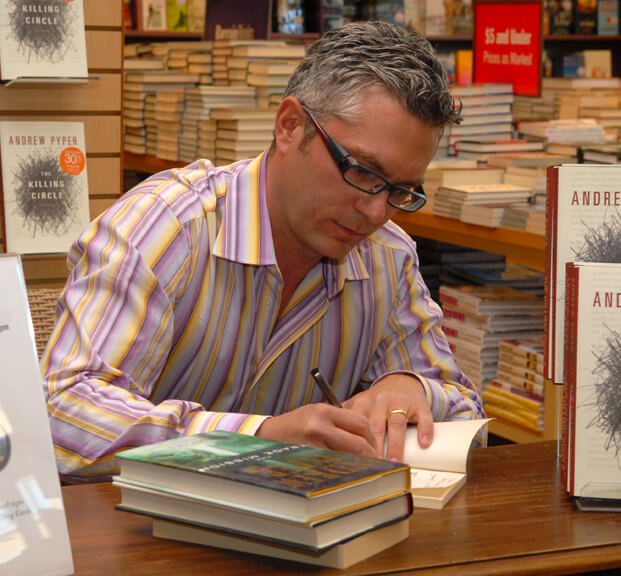
|

